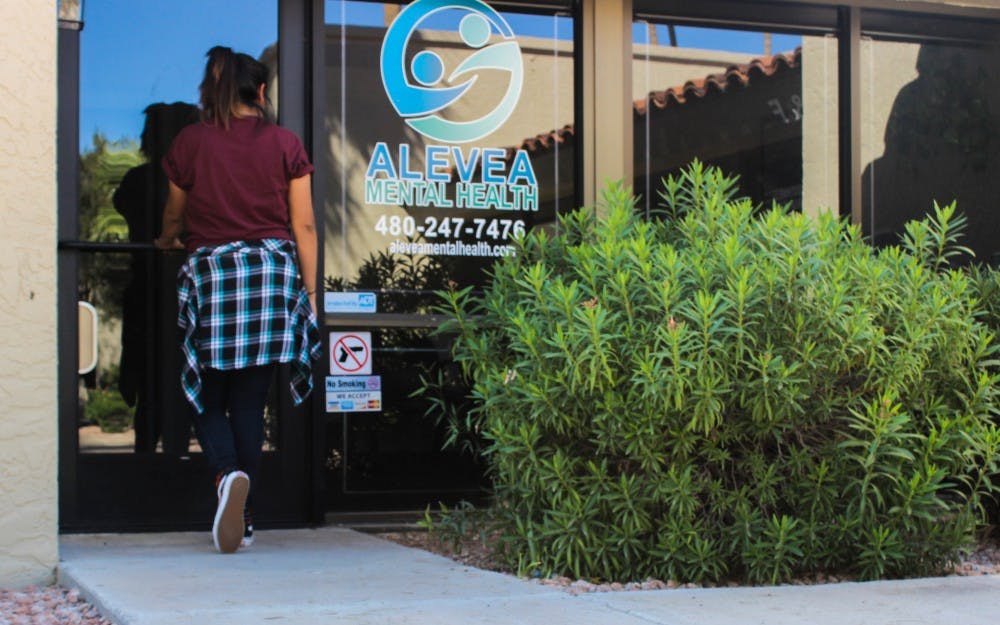Many college students worldwide struggle with mental health issues such as anxiety and depression, and according to studies, their symptoms are getting worse.
According to the 2017 annual report, released by the Penn State Center for Collegiate Mental Health, college student from 2010 to 2017 demonstrated an increase in the severity of depression, generalized anxiety and social anxiety.
ASU students may not always be aware of the resources available to address mental health issues they face. Besides traditional school counseling services, there are a variety of other resources on and around campus to help students improve their mental health.
ASU alumni Topher Bradshaw and Tom Pearson, who met while studying at ASU, recently opened Alevea Mental Health in Tempe a few miles away from campus. The duo feels as if proper treatment and resources for mental health lack not only at ASU, but also in the entire Phoenix area.
“Now, mental health is being pushed more in the forefront. It is becoming less of a stigma than it used to be,” Bradshaw said. “I think that there should be more resources, especially when it comes to mental health.”
On campus, there are often events hosted by the Resident Housing Association, various types of self-care activities hosted at the Sun Devil Fitness Complex and various events in the past like #Unplugged and Self-Care Fair, all held with the goal of helping students de-stress and learn self care.
There are also a variety of clubs on campus geared towards mental health awareness, such as the Proud2BMe club, which focuses on body-image issues and the improvement of self confidence for students.
Madison DeHaven, a senior nutrition major who is the president of Proud2BMe, said that though there are advertisements for ASU counseling services posted around campus, students are not necessarily being informed on the variety of clubs and organizations created to improve their mental health.
“There is more work to be done,” DeHaven said. “I don’t really see a lot of advertisements for mental health clubs on campus.”
Aside from student clubs struggling to get exposure, there is also a shortage of mental health clinics near campus. Bradshaw and Pearson said the number of patients who come into mental health centers each day surpasses the amount of staff and resources available at the clinics. This leads to long wait times for individuals who have urgent struggles with mental health.
“There are not a lot of mental health clinics out there, and that is definitely something that is needed. A lot of patients have nowhere to go, and when they do have a place, the wait is usually at least three months,” Pearson said.
The push for more resources is what prompted the duo to create Alevea Mental Health, as they gear their treatment towards the college population and expect a lot of their patients to be ASU students.
“We’re really targeting that young adult population,” Bradshaw said. “Being that we’re right down the street from ASU, that is our target audience.”
Similar to ASU counseling, Alevea does not plan on turning away any patients seeking help. They currently offer discounted rates and are considering offering a student discount in the future.
Bradshaw and Pearson said they will always find a way to treat a person struggling with mental health problems, especially in a society that is lacking mental health resources.
“If anyone comes to our clinic, and they have a need, we will find a way to make it work,” Bradshaw said. “You can’t place monetary value on someone suffering from mental health needs.”
Reach the reporter at mmbarbe3@asu.edu and follow @meganbarbera_ on Twitter.
Like The State Press on Facebook and follow @statepress on Twitter.




